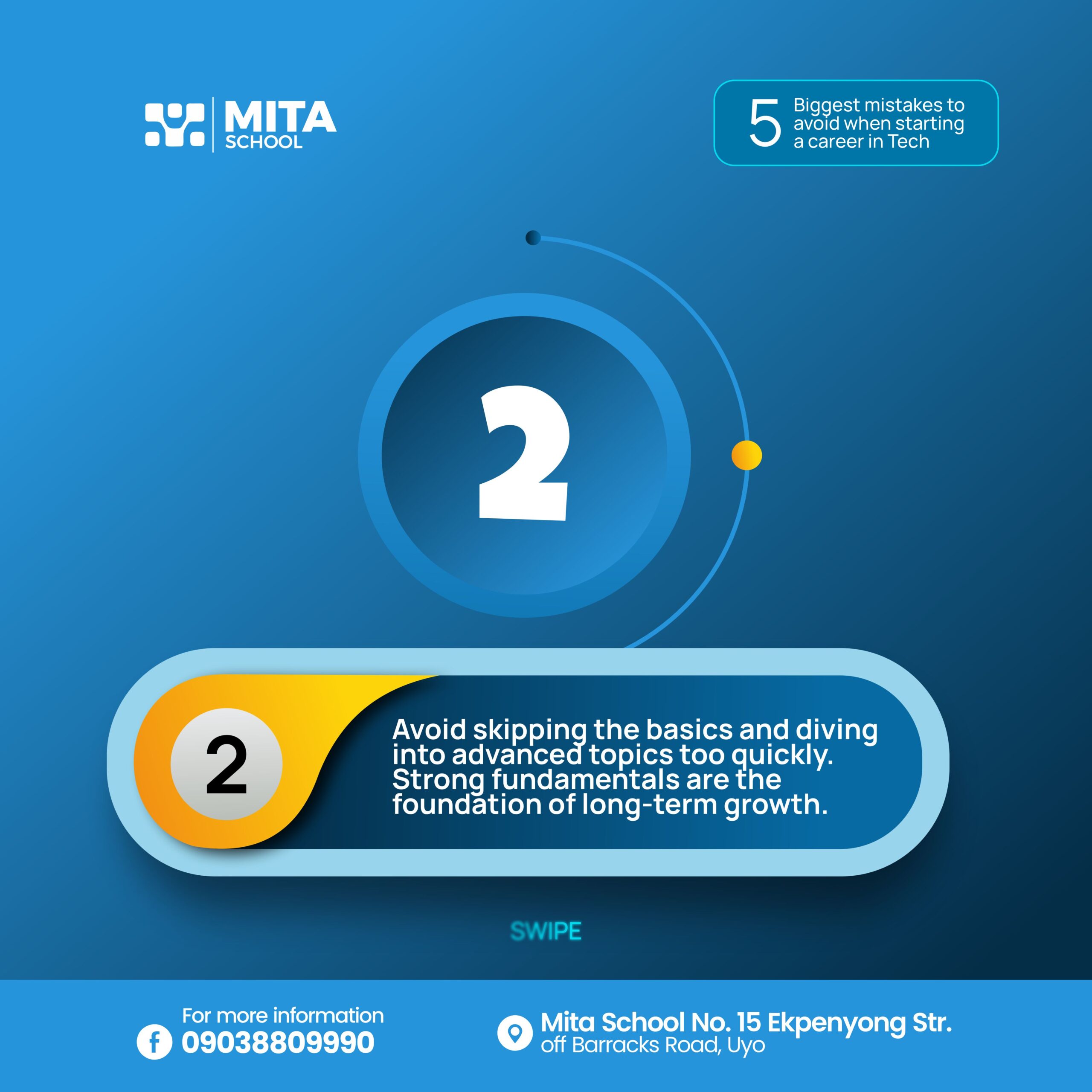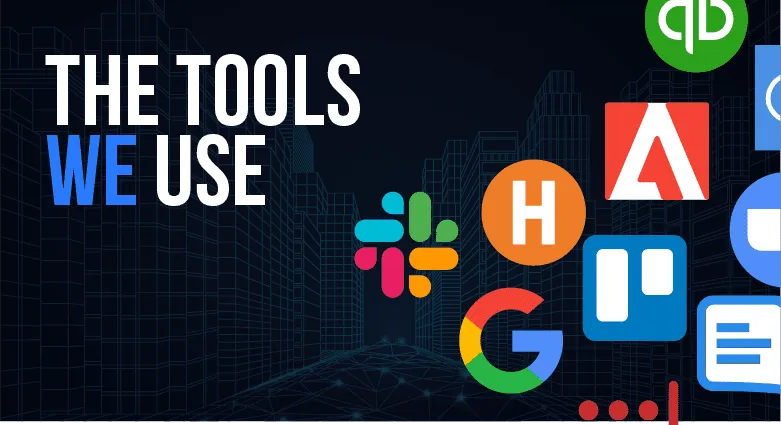There’s a modern itch: scroll, learn the flashy thing, build overnight, and land a six-figure role. The problem is — that shortcut rarely exists. In tech, fundamentals are the scaffolding that make everything else stand upright. Skip them and advanced tools feel like a foreign language you never studied.
If you want to build a career that lasts, you must treat fundamentals as non-negotiable. This article explains why, shows real-life evidence (Nigerian and global), and gives step-by-step guidance so you can stop spinning your wheels and start building real capability.
Why fundamentals matter (and why everyone rushes past them)
When a new library, AI model, or framework appears, headlines shout and influencers flood feeds. The Gartner Hype Cycle maps exactly how this plays out: a “Peak of Inflated Expectations” is followed by a “Trough of Disillusionment,” and only later do the useful technologies reach a “Plateau of Productivity.” If you chase the peak without a foundation, you’ll be in the trough with no ladder up.
Foundations transfer across tools. Learn how to reason about algorithms, data structures, debugging, system design, or clean data — and you can pick up frameworks later in weeks rather than months. The Stack Overflow Developer Survey reinforces that the most resilient developers aren’t framework jockeys; they’re problem-solvers who can adapt to new stacks. Stack Overflow Survey
In Nigeria, where digital literacy and technical training are still evolving, the gap between flashy ads and market realities is wide. Several studies highlight that vocational and technical education — the basics — remain critical to building employable skills and sustainable careers. Investing time in core skills yields measurable workplace readiness.
Real-life examples — what happens when beginners skip the basics
A Nigerian classroom: the PowerBI shortcut
A student signed up for a data-analytics course and refused to practice Excel properly. He wanted Power BI dashboards immediately because dashboards are sexy. When given a dataset to prepare for an assessment, he couldn’t clean or normalize data. The dashboard looked great on the surface but produced misleading insights — and he failed the assignment. The lesson: presentation without clean data is a house built on sand.
Bootcamp churn: global cautionary tales
Many intensive bootcamps promise rapid job placement by teaching frameworks intensively. Investigations and alumni reports show that when bootcamps emphasize tools over foundational thinking, graduates can struggle in interviews and on the job. Analysts and educators have critiqued bootcamps for not spending enough time on the fundamentals needed for long-term career success.
The long game: an alternate success story
Contrast that with a student who began with small, boring basics—variables, loops, Git, SQL—then slowly built projects. After three months she could debug problems on her own, move between languages, and adapt to changes. Employers prefer this kind of candidate because they can learn on the job.
Lessons learned (why fundamentals are the single most important investment)
-
Transferability — Fundamentals are tool-agnostic. Understanding how HTTP, data types, or normalization works helps you in any framework or platform.
-
Debugging speed — When you know core concepts, you locate and fix errors faster.
-
Job-readiness — Employers test fundamentals (algorithms, SQL, system behavior) because these show thinking, not just memorization.
-
Longevity — Tools come and go. Foundational skills let you pivot rather than rewind your learning when trends change.
Practical, evidence-based steps to build rock-solid fundamentals
Below are concrete actions used by successful learners and recommended by educators and industry reports.
1) Map the fundamentals for your chosen lane
Different tech paths require different foundations. Start here:
-
Web / App Dev: HTML, CSS, JavaScript basics → Git & command line → HTTP/REST → DOM & events → small CRUD apps
-
Data / Analytics: Excel & spreadsheets → SQL (SELECT, JOIN, GROUP BY) → data cleaning principles → basic visualization → Python/pandas later
-
Cybersecurity: Networking fundamentals (TCP/IP) → Linux and command line → system hardening basics → OWASP Top 10
-
UI/UX / Design: Basic design principles (layout, typography, color) → Figma fundamentals → user research basics
(These maps reflect common job requirements in Nigerian job listings and global employer surveys.)
2) Use a “70/30” learning rule
-
70% of practice: Core fundamentals (exercises, small tasks, repetition)
-
30% of exploration: Frameworks, tools, and trendy tech
This prevents being dazzled by tools while building muscle memory on basics.
3) Build tiny, repeatable projects
Stop with tutorials that follow step-by-step. Instead:
-
Build a calculator app (loops, conditionals)—then refactor it.
-
Create a personal expenses sheet in Excel, normalize and analyze it—then visualize in Power BI.
-
Make a simple CRUD API in pure Node/Flask before using Express or Django.
Projects force you to face reality: missing fundamentals become obvious and immediately valuable to learn.
4) Debug, explain, repeat
When a bug appears, don’t copy a StackOverflow fix blindly. Debug methodically, then explain the root cause in a one-paragraph journal. Teaching or explaining reinforces fundamentals faster than passive watching.
5) Build assessment-ready artifacts
Employers want proof. Your artifacts should include:
-
GitHub repo with README and deploy instructions
-
A short write-up: problem, approach, what you learned, next steps
-
Screenshots or short demo videos
This demonstrates both fundamentals and the ability to deliver.
Comparisons: What success and failure look like over 6 months
| Learner Type | Month 2 | Month 4 | Month 6 |
|---|---|---|---|
| Skipper (skips basics) | Picks framework tutorials | Hits confusing errors | Gives up / restarts |
| Builder (masters basics) | Can code small solutions | Builds several projects | Starts freelancing or interviews confidently |
A 30–60 Day Starter Plan (practical template you can copy)
Week 1 (Foundations):
-
Pick path + list 5 job postings → extract core required basics.
-
Daily: 45–60 min practice on fundamentals (variables, loops, Excel formulas).
-
Build: tiny project 1 (e.g., calculator / data cleanup).
Week 2 (Consolidate):
-
Add version control: basic Git workflows (commit, branch, push).
-
Finish project 1 and write README + 1-paragraph reflection.
-
Start small community habit: post progress once.
Week 3 (Layer up):
-
Learn next fundamentals (DOM for frontend / SQL joins for data).
-
Build project 2 that uses fundamentals + one small library.
-
Ask for feedback in a community.
Week 4 (Ship & Polish):
-
Refactor projects, add tests or validations.
-
Prepare 2–3 minute demo video.
-
Share repo + writeup on LinkedIn/Dev.to.
Month 2 (Scale & diversify):
-
Start a small freelance gig / internship task, or contribute to open-source docs.
-
Keep fundamentals practice (30 min/day) while learning framework tools (30 min/day).
Interactive prompts to help you self-check
-
Can you explain, in 60 seconds, how a basic HTTP request works?
-
Can you write a SQL query that joins two tables and groups results?
-
When you hit a bug, do you know how to isolate the cause (console logs, step-through, simple test)?
If you can’t answer these easily, prioritize fundamentals.
Nigerian context & encouragement
Nigeria’s growing tech marketplace rewards competence. While many courses and ads focus on flashy outcomes, the real advantage lies with learners who can demonstrate practical ability quickly. Technical and vocational studies in Nigeria stress the importance of foundational training to reduce unemployment and improve job fit — which mirrors what employers require on the ground. EA JournalsResearchGate
You don’t need the fanciest laptop or the most expensive course. You need a plan, consistency, and projects that show you can think clearly and solve problems. That’s the kind of learner Nigerian employers hire.
Common objections (and short rebuttals)
-
“But frameworks speed up development — I should learn them early.”
Absolutely. But frameworks are exponentially more useful after you understand underlying mechanics. Think of a framework as a power tool — powerful only when you know basic carpentry. -
“I’m bored by basics.”
Fundamentals are rarely flashy, but they’re where you earn confidence. Make them fun: gamify practice, compete with peers, or build tiny wins. -
“I don’t have time.”
30–60 minutes daily for fundamentals beats 4-hour binge sessions that leave you burnt out.
Final checklist (before you move to advanced tools)
-
I can reproduce a small project without copying code.
-
I have at least two small projects I can show (with README).
-
I’ve practiced debugging and can explain one real bug I fixed.
-
I can read job posts in my target field and identify 3 recurring required basics.
Keep reading the full series
-
Mistake 3: Chasing Certificates Without Real Projects
-
Mistake 4: Expecting Instant Wealth From Tech
-
Mistake 5: Going Solo Without Community or Mentorship




